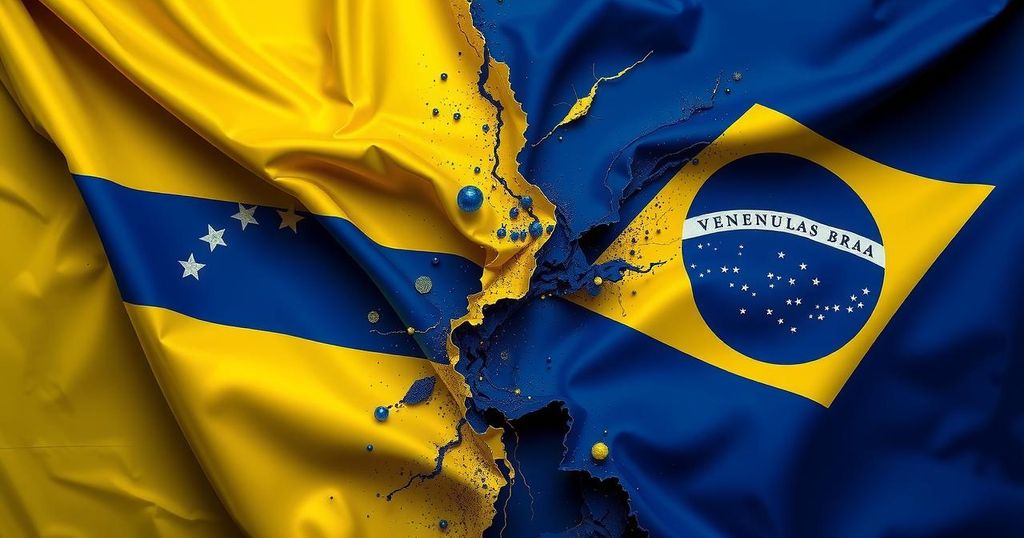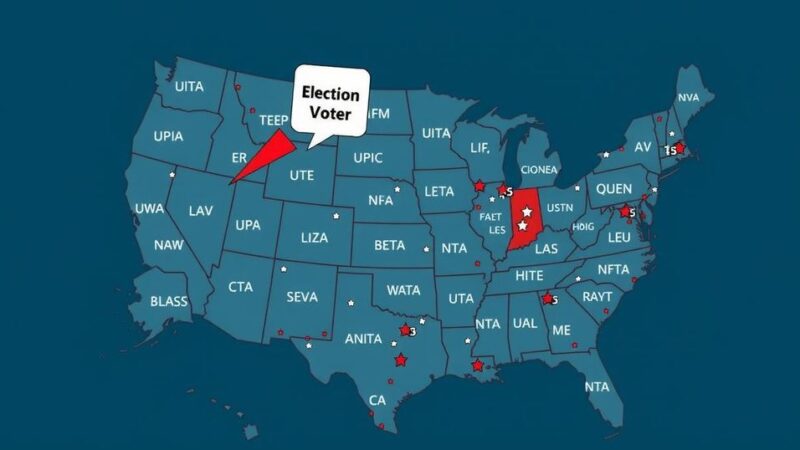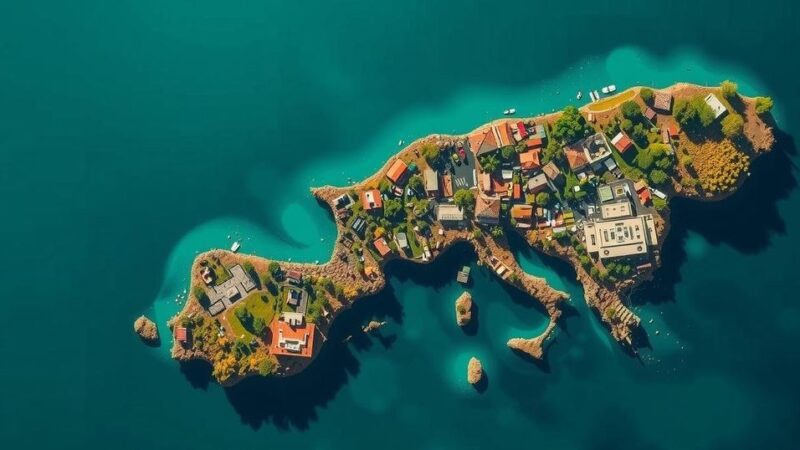Venezuela has recalled its ambassador from Brazil, expressing outrage over Brazil’s veto of its BRICS membership application and criticizing Brazilian officials for rude remarks. This incident intensifies existing tensions stemming from the disputed re-election of President Nicolás Maduro and Brazil’s reluctance to recognize his legitimacy.
In a recent escalation of diplomatic tensions, Venezuela has recalled its ambassador from Brazil following its unsuccessful attempt to secure membership in the BRICS group of major developing nations. The Foreign Ministry of Venezuela criticized Brazilian officials for their interventionist remarks and accused them of obstructing Venezuela’s aspirations to join BRICS. This diplomatic strife further strains relations between the two South American neighbors, already compromised after Venezuelan President Nicolás Maduro controversially declared his re-election amid allegations of electoral fraud. Brazil’s President Lula da Silva has refrained from recognizing Maduro’s victory, insisting upon the publication of official electoral results. The veto of Venezuela’s BRICS membership at the recent summit in Kazan has deepened the rift, with Venezuela asserting that the actions taken were an affront to its sovereignty and an act reminiscent of imperialism. The situation is compounded by the unhindered political crisis within Venezuela, where unrest and opposition movements continue amid a severe crackdown from government forces.
The BRICS alliance, comprising Brazil, Russia, India, China, and South Africa, has recently expanded to include new members such as Iran, Egypt, Ethiopia, and the United Arab Emirates. Venezuela, under Nicolás Maduro, has sought to align with BRICS to gain international support; however, recent political events, including allegations of electoral malpractice and violence against opposition demonstrations, have discredited its government in the eyes of several countries, including Brazil. President Lula da Silva has historically aligned with the socialist ideologies of Maduro’s predecessors but has taken a more cautious approach due to the controversial legitimacy of Maduro’s election. The geopolitical landscape is further complicated by U.S. interests in the region and the strained relations amidst broader narratives of imperialism versus sovereignty.
In conclusion, the diplomatic fallout between Venezuela and Brazil illustrates the complexities of international relations in a politically charged atmosphere. Venezuela’s recall of its ambassador reflects deep-seated grievances over Brazil’s perceived interference in its internal matters and highlights the ongoing turmoil surrounding Maduro’s administration. As tensions continue to unfold, the implications for regional stability and Venezuela’s aspirations within the BRICS framework remain uncertain.
Original Source: www.aljazeera.com






